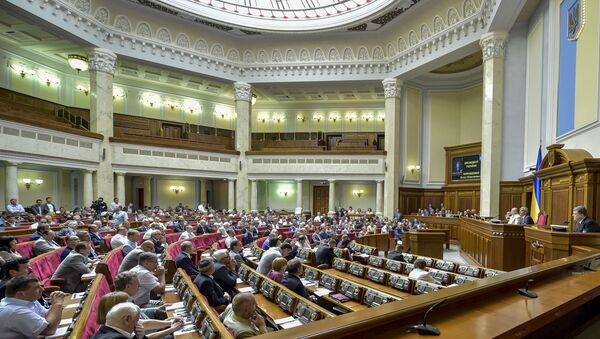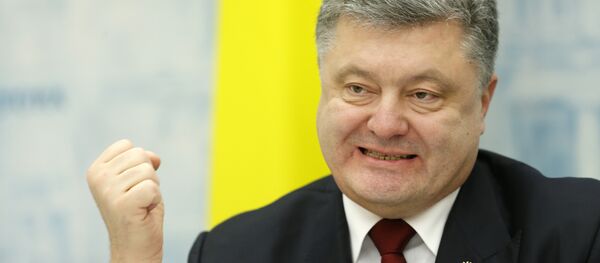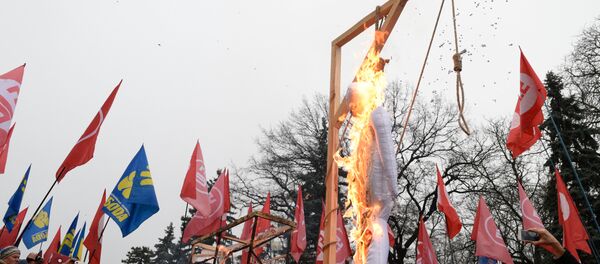President Petro Poroshenko dismissed the proposal as a ”direct step” towards federalization, which he said he would never allow to happen.
Decentralization and granting an autonomous status to Donbass — one of the main provisions of the Minsk accords – were supposed to have been approved before the end of last year.
The presidential draft won preliminary approval in August 2015 but political discussions about the need to turn Ukraine into a federative state rage on.
“Failure to decentralize may put the very future of Ukraine as a state on the line, especially given the centrifugal forces existing between the regional elites and the central government,” Oleg Bondarenko, a Moscow-based political analyst said during a recent roundtable organized by the newspaper Komsomolskaya Pravda.
Rostislav Ishchenko, the head of the Center for Systemic Analysis and Forecasts, said that federalization of Ukraine was an objective process, which has been going on for quite some time now.
“There is no way you can stop it. You could try to slow it down, but this will exacerbate even further the frictions that already exist between the regions and the federal center. This will eventually bring the situation to a head and precipitate the breakup of Ukraine as a single state,” Ishchenko warned.
He added that if President Poroshenko attempted to greenlight the federalization process he would antagonize the parliament, the government and even his own team. On the other hand, he is under foreign and regional pressure to do exactly this.
Both agreed, however, that the process of de facto federalization was already on.
“This is part of an objective process Poroshenko can neither stop nor reverse no matter what he says,” Rostislav Ishchenko noted.
Ukrainian experts who took part in the roundtable agreed with Dmitro Dzhangirov mentioning the ongoing tug-of-war between the “weakening regional elites and the federal center.”
Kost Bondarenko, the head of the Ukrainian Politics Center in Kiev said that even though describing this process as federalization was a bit premature, “what we now see is a revision of the principle of a “unitarian state” as it was enshrined in the Ukrainian constitution in 1996.”
“There are at least three constitutional drafts now being considered in Ukraine and each contains a provision whereby regional governors should be elected and not appointed,” Bondarenko said.
Also being mulled is the so-called “Italian model” where the regions in a unitarian state enjoy a great deal of self-rule.
“What is absolutely clear is that Ukraine’s outdated political makeup needs a change, just like that status of the regional governors,” Kost Bondarenko emphasized.




